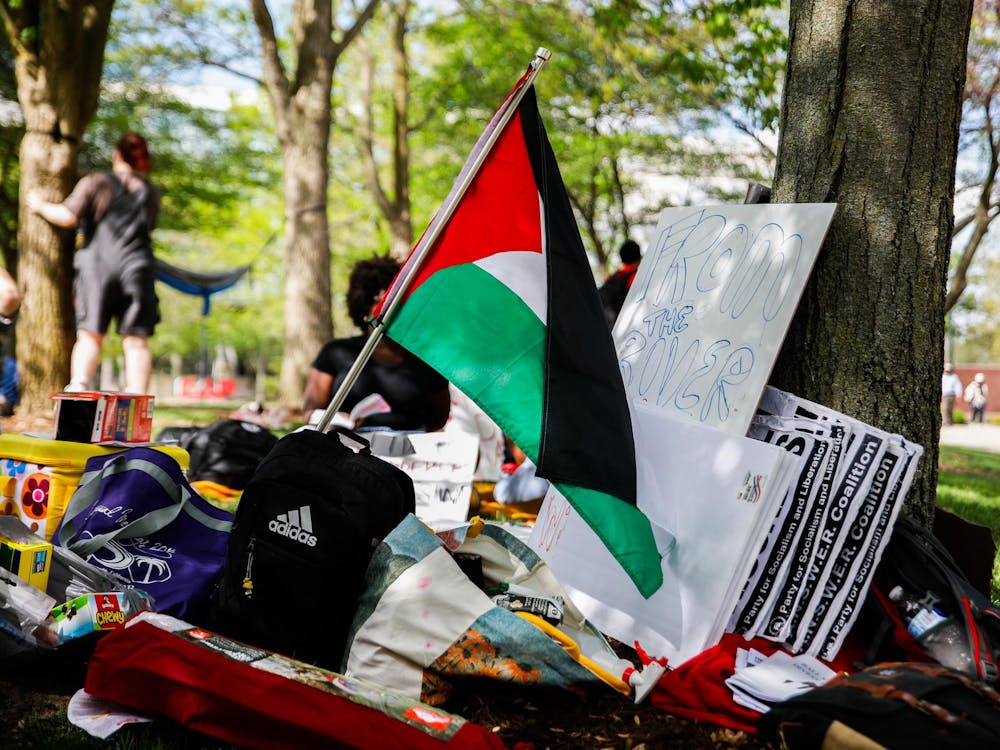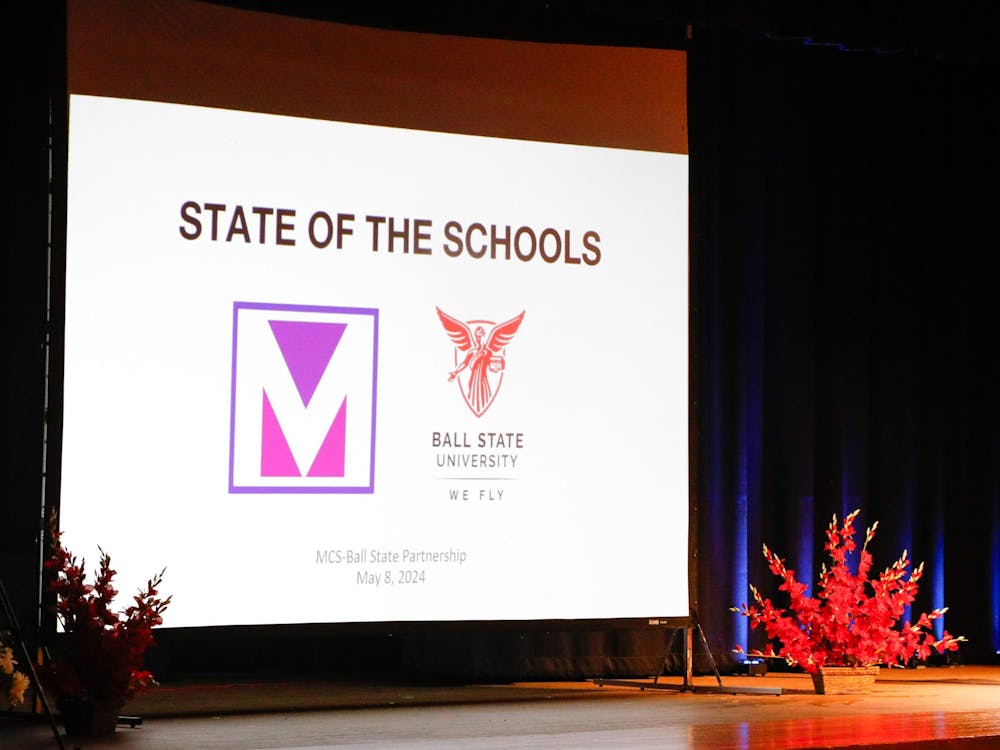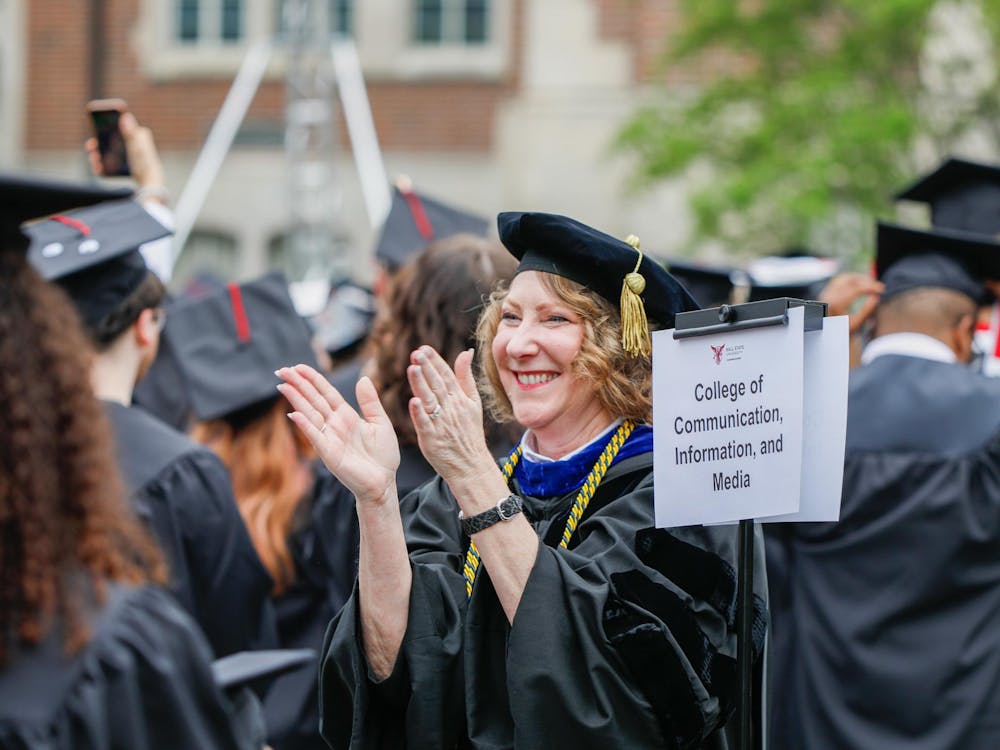Making minors dump out their 24 pack of beer, a jug of Captain Morgan and other liquor is just another traffic stop on third shift as a University Police Department officer.
With the blue and red lights flashing across nearby yards and houses as the only source of light, Sgt. Matt Gaither is in his usual zone - the dark.
Working an 11 p.m. to 7 a.m. shift, 40 hours a week, can make it difficult to stay awake, even after five years on the job. Gaither added, though, that if it's a Friday or Saturday night, it's easier because the shift is busier than during the week.
"The biggest thing you can do in this job to stay awake, no matter what shift you are on, is to stay in good physical shape," he said. "If you eat right, and you exercise, you will find yourself get less fatigued."
Patrolman Corey Shinn has been on third shift for about a month and said he knows it can be tough during the early morning hours to deal with intoxicated people.
"They don't want to listen and they don't know what you want them to do exactly, and they think that they can do anything," he said. "That can be difficult at times, getting your point across to them, and them understanding and cooperating."
A typical weekend night for the working UPD officers sees many loud parties, a few fights at the Village and a lot of minors with alcohol and public intoxication, Gaither said. It can be difficult for officers when they deal with alcohol-related offenses all evening.
"It's tough when you're tired, and you just told the past five people that are intoxicated the same thing that you're going to tell the next five people that are intoxicated," he said. "It really tests your patience to deal with them."
During third shift, more serious crimes tend to occur. Traffic stops can sometimes lead to more serious issues. During a stop Friday night, a car made a wide turn onto New York Avenue from Riverside Avenue, prompting Gaither to pull the vehicle over for possible drunken driving.
Two handguns were found. As procedure, Gaither ran the licenses and handgun information through the computer to see if the guns were possibly stolen or registered. The guns turned out to be registered, but the adrenaline is still high after incidents such as that one.
"Obviously that raises a red flag because anytime a gun is involved, it just changes the nature of the traffic stop," he said. "The biggest thing that really always heightens your awareness is if they tell you there is no weapon, and you find it; or they don't tell you, and you notice it or see it someplace laying in the car."
Stopping people for drunken driving is a common occurrence during the night hours, Gaither said. It's not uncommon during warm weather and a lot of traffic to have 10 to 12 DUI arrests in a week during third shift. The department as a whole has about 5,000 traffic stops a year.
With the bright spotlight from the front of the police car on the possibly intoxicated person, UPD officers give sobriety tests during their shift. There are three certified tests done in Indiana to test sobriety - the horizontal gaze nystagmus where the officer tracks the movement of the eye; a nine-step walk and turn where the person is told to imagine a straight line on the pavement, and the person does a series of steps and turns; and a one-leg stand. All three combine to determine if the person is impaired.
Spending the evening administering sobriety tests and making minors pour out their alcohol can be difficult for younger officers.
Patrolman Jordan Brand, who has been on third shift for one and a half years, is the youngest at 23.
"A lot of times, you miss out when you're asleep and your friends are out doing stuff, or they're out here, and you run into them," Brand said. "Being young, we see a lot of our friends out here. That can be tough."
Despite the difficulty of the hours, Shinn said third shift is a great place to learn.
"It's hard to get used to, but it's where you learn the most," he said. "I think you can get the best experience from midnights."
The evening is a separate atmosphere than the day shift.
"It's a whole different world out here," Brand said. "Everything is dark, and almost everybody you encounter is usually intoxicated. That can change it up a lot."
Gaither said the most rewarding part of his job is the respect he feels from people, even though he deals with minors, parties and traffic stops throughout the evening.
"It's probably that level of trust, that level of respect, that confidence that people have in you to be able to help them," he said. "I like that when somebody sees me, that the majority of people see you as somebody that's there to help them, that sees you as a role model."




